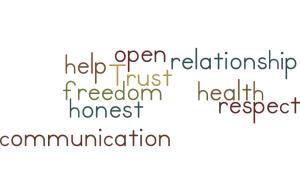 At diabetes and other health-related visits, there are forms to fill out, questions to answer, numbers to report.
At diabetes and other health-related visits, there are forms to fill out, questions to answer, numbers to report.
Do you tell the truth to health care professionals? Believe it or not there is a belief out there that people with diabetes lie to their providers.
The more important question is Are you comfortable telling the truth? Do you have a trusting relationship with your health care providers?
This is the crucial first step in any patient-provider relationship – establishing a trusting relationship. Without that we are likely to either leave important information out, or give blatantly incorrect information.
For health care professionals the question is Why is a patient not telling the truth? Are they not comfortable? Do they trust us? Have they had bad experiences in the past?
Without the whole story health care providers can’t help people with diabetes develop the best plan for managing diabetes effectively. Like I tell my kids when I remind them to check in: “I can’t help you if I don’t know where you are.”
So it takes these steps to set up an environment for the best possible health care interactions: 1) professionals establishing a trusting relationship/environment; 2) open, honest communication (free from blame, shame, and guilt); and 3) making a plan together – one that works for the person’s life and one that will lead to the best possible outcomes.
If you don’t feel comfortable telling the whole truth at provider visits, or if you suspect that patients you work with aren’t telling the whole truth at visits with you…dig a little deeper. It will definitely be worth the effort.






